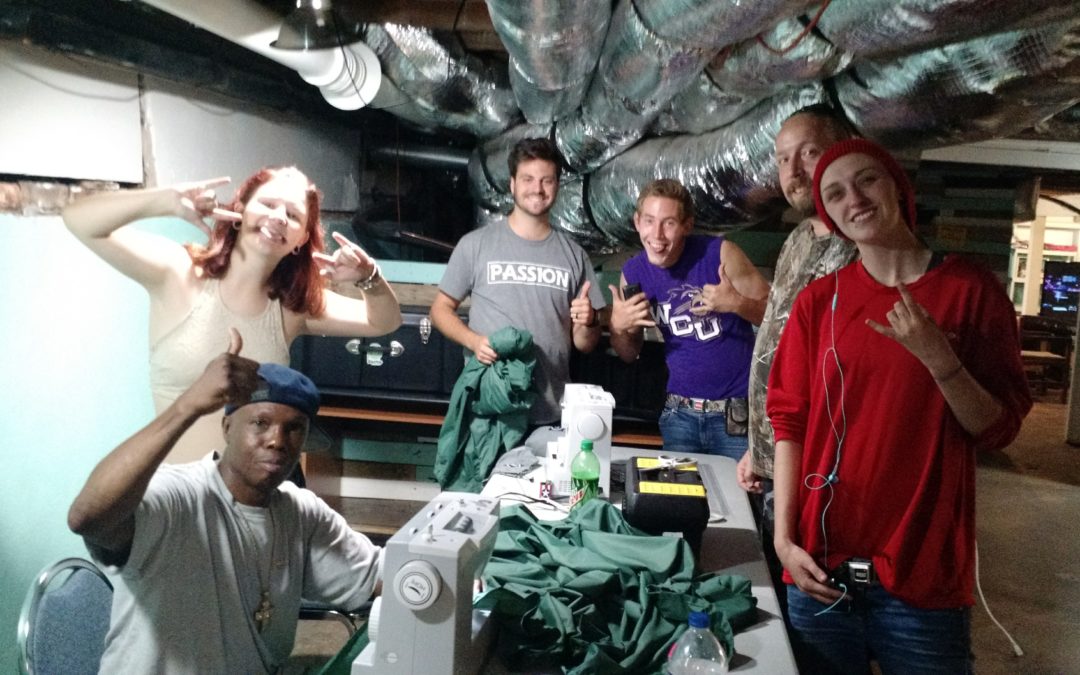Last week in the blog post titled “He began to be in need” we took a look at Luke 15.11-32 and how the youngest son squandered everything he had and began to be in need. While considering this phrase I decided to look at other places this phrase could be found in the Gospel of Luke. In the original language of the New Testament the Greek word for “to be in need” is ὑστερέω. Interestingly, ὑστερέω is only found in one other place in the Gospel of Luke — you can find it in Luke 22.35. In this passage Jesus is reflecting with his disciples how he had sent them out two-by-two into the surrounding towns and villages that he was going to go to eventually. They were sent as representatives of him and they were commissioned for a particular work.
While Jesus was reflecting with his disciples about how they had been sent out he asked them in Luke 22.35: “‘When I sent you out without a purse, bag, or sandals, did you lack anything?’ They said, ‘No, not a thing.'” Why didn’t they have any need? They should of been in need. Jesus sent them to these towns and villages without food, money, a bag, and without shoes. What makes them answer Jesus’ reflective questions with a definitive “no”?
I have been considering the juxtaposition of these two ways of looking at need that we find with the story of the prodigal son and the sending forth of the seventy disciples. In Luke 15.11-32 the youngest son leaves his family with his half of the inheritance, whereas the disciples are sent by Jesus in Luke 10.1-12 without much of anything (without food, money, a bag, and without shoes); the youngest son leaves by himself, whereas the disciples are sent out with a companion; the youngest son invests in shallow relationships that disappear when the money runs out, whereas the disciples go and find people of peace that invite them into their homes and into their lives; the youngest son cannot find meaningful work so he hires himself out to a pig farmer, whereas the disciples are given meaningful work where they are to cure the sick and proclaim that the Kingdom of God has come near to them (Luke 10.9); the youngest son longs to eat of the pig slop, whereas the disciples have food that is set before them and they eat of this food with their people of peace; the youngest son was suffering from an economic collapse because of a famine in the land, whereas the disciples were confident to come into these towns because Jesus had said “the laborer deserves to be paid” (Luke 10.7).
When we allow the passages to be in conversation with each other around this notion of “need” we can notice that there is a shift. The shift starts with the word need and shifts to the word welcome. Here in Wilmington we are being called by the Lord to shift our way of looking at all of those who come to our great city. We are to shift our way of looking at all of these people from being in need to our welcoming them as ambassadors of Christ. We do this by becoming people of peace that welcome our new friends to come and serve with us.
This way of thinking flies in the face of trying to meet peoples’ needs. This way of looking at our friends means that no one has any needs, but instead all of their needs will be provided and we get the amazing opportunity to welcome our sisters and brothers and serve with them. As we become people of peace our city becomes a city of peace — a city that welcomes our sisters and brothers that are the most vulnerable in society. But we do not welcome because we are taking people on as yet another do-gooder project, instead we welcome people as friends that God has sent to serve beside.
In my next blog post we will explore the ramifications in this shift from need to welcome. In the coming weeks we will explore food, companionship, housing, jobs, ministry, and calling. If you would like to ever get together and discuss some of the things that are written about, feel free to call Philip Chryst at 910.524.5676

